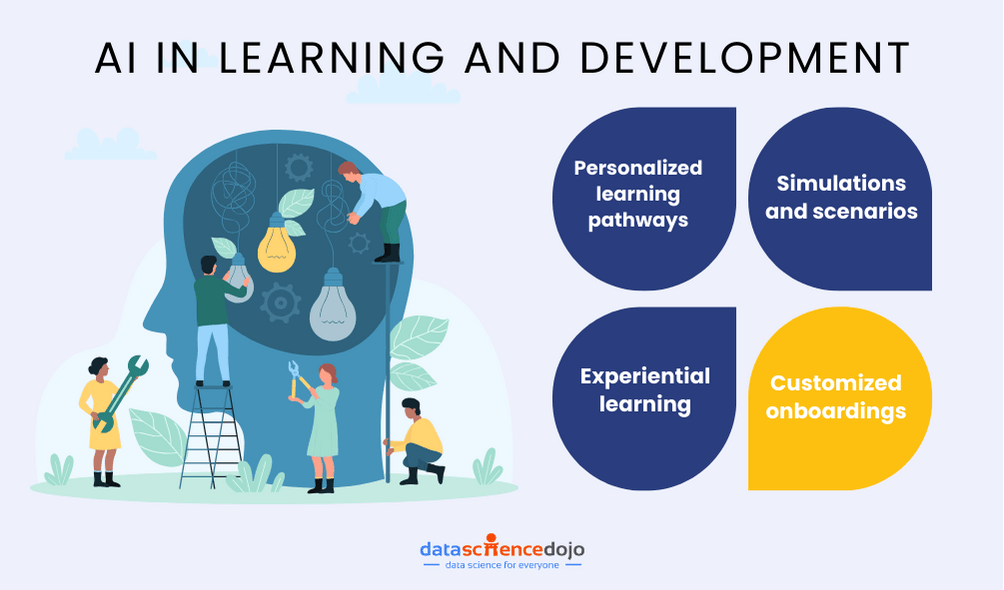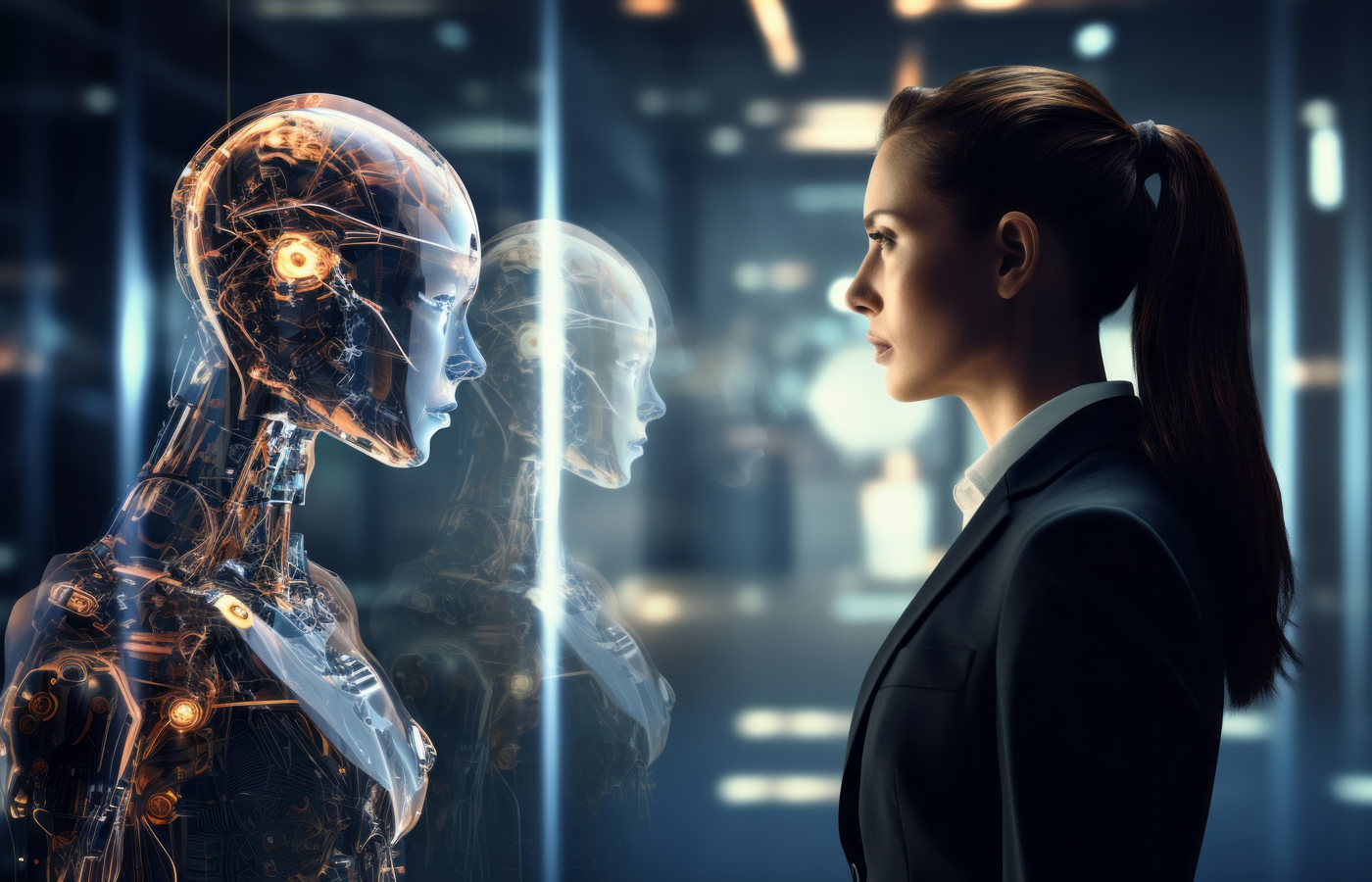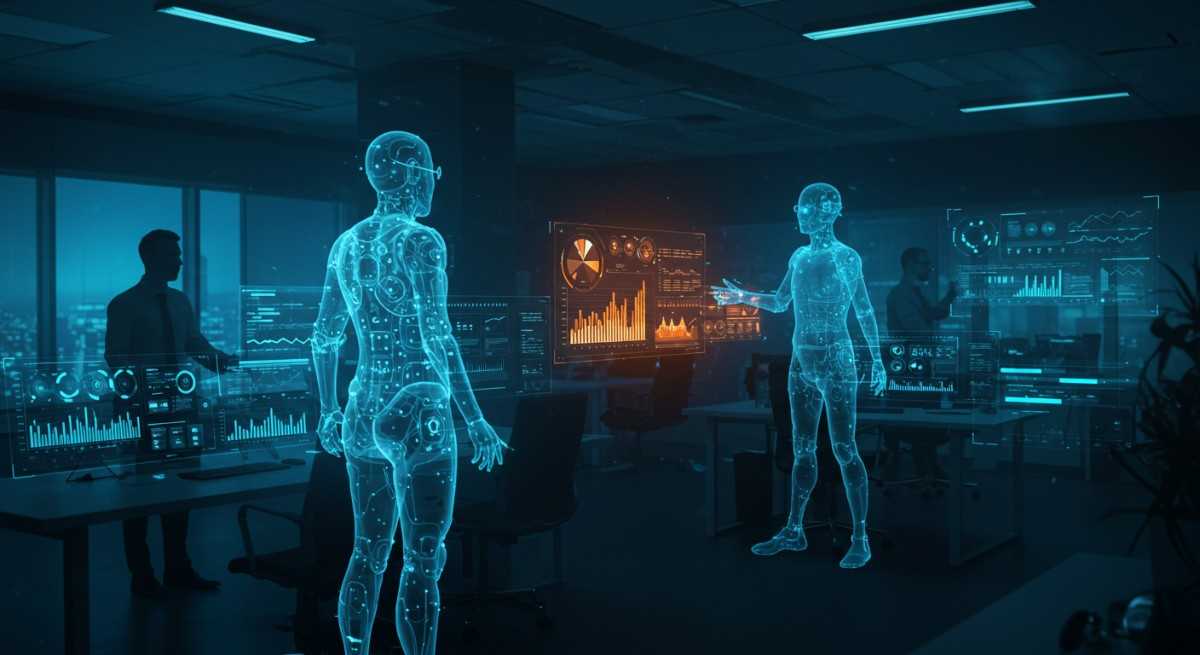People operations are an integral part of any organization. Disruptive technologies tend to spark equal parts interest and fear in those related to operations, as they are directly affected by them.
Impact of Generative AI on People Operations
Generative AI (artificial intelligence) has had similar effects, where its accessibility and a vast variety of use cases have created a buzz that has led to a profound impact on jobs of every nature. Within HR (human resources), it can help automate and optimize repetitive tasks customized at an employee level.
Very basic use cases include generating interview questions, creating job postings, and assisting in writing performance reviews. It can also help personalize each employee’s experience at the company by building custom onboarding paths, learning plans, and performance reviews.

This takes a bit off the HR team’s plate, leaving more time for strategic thinking and decision-making. On a metric level, AI can help in hiring decisions by calculating turnover, attrition, and performance.
Since AI is revolutionizing the way processes are organized in companies, HR processes automated by generative AI can feel more personalized and thus drive engagement. We will particularly investigate the impact and potential changes in the landscape of learning and development of organizations.
Development Benefits for Employees
Now, more than ever, companies are investing in and reaping from the benefits of L&D, leading to better employee experiences, lower turnover, higher productivity, and higher performance at work. In an ever-changing technological environment, upskilling employees has taken center stage.
Read more on how AI is empowering the education industry
As technology reshapes industries, skill requirements have shifted, demanding continuous adaptation. Amid the proliferation of automation, AI, and digitalization, investing in learning ensures individuals remain relevant and competitive.
Moreover, fostering a culture of continuous development within organizations enhances employee satisfaction and engagement, driving innovation and propelling businesses forward in an era where staying ahead is synonymous with staying educated. In addition to that, younger employees are attracted to learning opportunities and value career growth based on skill development.
Meeting Personalized Learning and Teaching Needs
A particular way that generative AI impacts and influences learning and development is through greater personalization in learning. Using datasets and algorithms, AI can help generate adaptable educational content based on analyzing each learner’s learning patterns, strengths, and areas of improvement.
AI can help craft learning paths that cater to everyone’s learning needs and can be tailored according to their cognitive preferences. Since L&D professionals spend a lot of time generating content for training and workshops, AI can help not only generate this content for them but also, based on the learning styles, comprehension speed, and complexity of the material, determine the best pedagogy.
Also learn how AI is empowering non-profit organizations
For trainers creating teaching material, Generative AI lightens the workload of educators by producing assessments, quizzes, and study materials. AI can swiftly create a range of evaluation tools tailored to specific learning outcomes, granting educators more time to focus on analyzing results and adapting their teaching strategies accordingly.
One of the important ways that training is designed is through immersive experiences and simulations. These are often difficult to create and take lengthy hours. Using generative AI, professionals can create scenarios, characters, and environments close to real life, enhancing the experience of experiential learning.
Learning skills that are elevated risk, for example, medical procedures or hazardous industrial tasks, learners can now be exposed to such situations without risk on a secure platform using a simulation generated through AI. In addition to being able to learn in an experiential simulation, which can lead to skill mastery.
Such simulations can also generate personalized feedback for each learner, which can lead to a better employee experience. Due to the adaptability of these simulations, they can be customized according to the learner’s pace and style.
Another interesting read: Why every employee should learn Data Science?
AI can help spark creativity by generating unexpected ideas or suggestions, prompting educators to think outside the box and explore innovative teaching approaches. Generative AI optimizes content creation processes, offering educators time-saving tools while preserving the need for human guidance and creativity to ensure optimal educational outcomes.
Is AI the Ultimate Replacement for People?

Although AI can help speed up the process of creating training content, this is an area where human expertise is always needed to verify accuracy and quality. It is necessary to review and refine AI-generated content, contextualizing it based on relevance, and adding a personal touch to make it relatable for learners.
This constructive interaction ensures that the advantages of AI are leveraged while ensuring speed. As with other AI-generated content, there are certain ethical considerations that L&D professionals must consider when using it to create content.
Transparency in Communications
Educators must ensure that AI-generated materials respect intellectual property and provide accurate attributions to original sources. Transparent communication about AI involvement is crucial to maintaining trust and authenticity in educational settings. We have discussed at length how AI is useful in generating customizable learning experiences.
However, AI relies on user data for personalization, requiring strict measures to protect sensitive information. It is also extremely important to ensure transparency when using AI to generate content for training, where learners must be able to distinguish between AI-generated and human-created materials. L&D professionals also need to address any biases that might inadvertently seep into AI-generated content.
Curious about the employee experience at Data Science Dojo? Click here to find out!
AI has proven to be proficient in helping make processes quicker and more streamlined, however, its inability to understand complex human emotions limits its capacity to understand culture and context. When dealing with sensitive issues in learning and development, L&D professionals should be wary of the lack of emotional intelligence in AI-generated content, which is required for sensitive subjects, interpersonal interactions, and certain creative endeavors.
Hence, human intervention remains essential for content that necessitates a deep understanding of human complexities.
The Solution Lies in Finding the Right Balance
Assuming that with time there will be greater involvement of AI in people operations for the need of automation, HR leaders will have to ensure that the human element is not lost during it. This should be seen as an opportunity by HR professionals to reduce the number of administrative tasks, automate the menial work, and focus more on strategic decision-making.
Learning and development can be aided by AI, which empowers educators with efficient tools. Also, learners can engage with simulations, fostering experiential learning. However, the symbiotic relationship between AI and human involvement remains crucial for a balanced and effective educational landscape.
With an increase in the importance of learning and development at companies, generative AI is a revolutionizing tool helping people strategize by enabling dynamic content creation, adaptive learning experiences, and enhanced engagement.
Next Step for Operations in Organizations
Yet, as AI advances, educators and stakeholders must collaborate to ensure ethical content generation, transparency, bias mitigation, and data privacy. AI’s potential can be harnessed to augment human expertise, elevate education while upholding ethical standards, and preserve the indispensable role of human guidance.



